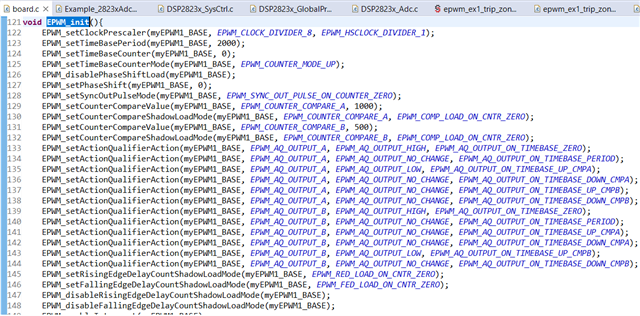Part Number: TMS320F280049C
Other Parts Discussed in Thread: C2000WARE
如下代码,相对于epwm1,epwm2相位差120度,epwm3相位差240度,
但是测试发现,相位没有差别,请问是为什么?
是要在中断处理函数中,再配置一下相位差吗
// 计算相位差
epwm2PhaseOffset = tbprd * (120.0f / 360); // 相位差120度
epwm3PhaseOffset = tbprd * (240.0f / 360); // 相位差240度
EPWM_enablePhaseShiftLoad(base2);
EPWM_setPhaseShift(base2, epwm2PhaseOffset);
EPWM_enablePhaseShiftLoad(base3);
EPWM_setPhaseShift(base3, epwm3PhaseOffset);


